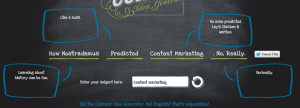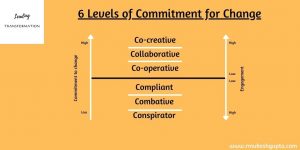“Are you prepared for the future of work?”
This phrase is asked constantly. At networking events, at dinners, at panel events, and in professional development conversations. Whether you’re a technical person or just want a nice non-technical job, people ask this question. Most of the time, it’s genuine. They care and actually want to know if you’re feeling prepared (or want to commiserate if they aren’t feeling prepared themselves).
One big fear about the “future of work” is the idea of job destruction. Fears that robots will take over everyone’s jobs and automation will make a world of unemployed people. While it is true that some jobs will no longer exist, in the same way you don’t see elevator operators or VHS rewinders, there will also be many jobs created. And to get these jobs requires a new take on networking. It’s not simply about being connected.
As old breaks, new makes
In the ‘good old days’ connections were primarily based on two things: association and geography. You could keep in touch with people fairly well if you had overlapping social circles. Sure, there was the phone to help you keep in touch across distances, plus letter writing, but it was not common to be close with people outside your immediate geography.
These connections were also how most “networking” happened. You built relationships based on shared geography and shared interests – and professional interests often followed.
Then came social media and everything changed. In an instant, someone you met in passing on vacation can stay tied to you through technology. The barriers to connection dropped to functionally nothing. However, this also decreased the value of a connection to functionally nothing. Networking couldn’t take place in the same way it did before because you relied on ad hoc messages in lieu of legitimate conversation and monthly “we should catch up!” messages in lieu of actively keeping in touch.
This new reality presents a dual challenge. The first challenge is that the way people network and find connection is changing. The second is that the pace of change is increasing. Many entrepreneurs, including Ronit Avni, are working to solve both problems at once. Avni is the founder of Localized, a platform that helps recent graduates from emerging markets find jobs by connecting them to employers. However, what’s unique about Localized encapsulates the future of networking: job seekers can connect with professionals who share heritage – people from their communities, identity groups, or hometowns (expats) – working in companies all over the world.
Avni said that the professionals on the platform are “people who want to give back to the next generation. They feel a sense of responsibility and commitment to give back to their communities of origin.”
By leveraging heritage identities, Avni has been able to tap into a deep-rooted desire for connection. You may not live in your hometown anymore, but you might have a soft spot for it. This is a similar model to university alumni associations which, particularly in the United States, results in a massive culture of supporting your school and helping other alumni. In a world of vague “connections,” finding a common thread such as heritage identity empowers job seekers to network with their own – a throwback to an earlier time when “your own” was bound by geography.
The future of networking in 4 steps
Finding a deep connection – the people you can call “your own” – doesn’t have to be based on heritage. It can stem from any identity or common interest that ignites passion and a sense of responsibility to help others in that community. But the process for the networker is also different in a world of increasing pace of change.
In the past, companies were for life.
“In my parents’ generation, you could enter a company – and that company could be the rest of your life,” said Avni. “You could retire at that company. You might have a pension. You could expect decent working conditions… there was [a] social contract or a bond between employers and employees to a certain extent.”
Now, not so much. Studies suggest that people will have multiple careers throughout their lives, each ranging from a few years to a decade or two instead of the usual 30-40 years of work then retiring. But that’s not the big problem for Avni.
“It’s not just that there’s change; it’s that the rate of change is accelerating so dramatically that it is no longer the case that you can expect your skills to be relevant for a decade or more,” said Avni. “We’re talking in years and sometimes months.”
These problems can occur – leaving you in the lurch – whether you’re just starting your career or you’re near retirement. The only way to address it, said Avni, is to cultivate a mindset of continuous learning.
“Number one: Listen to, learn from, follow, and ask questions of people who are working at the vanguard of these industries,” said Avni. “Do your homework, figure out how they are, and follow them in some way.”
When it comes to following someone, there are many platforms. Localized could be on example, but also through major social media platforms.
“The second piece is having a beginner’s mindset,” said Avni. “The idea that whatever we learn, there are going to be innovations. Whether it’s the process, or the tool, or the data itself that is going to change. So be prepared for the fact that this is about continually upgrading your skills.”
Avni said that people should think of professional development like karate. There are multiple belts, and the work never stops. As you get more experienced, you realize there’s even more to learn you weren’t aware of before. As you level up, it’s crucial to get a sense of what’s on the horizon.
“If you want to go into a particular field, talk to the people who are seeing the change coming, see what’s happening, and can get a sense of where growth opportunities are versus where they’re going to be shedding jobs,” said Avni. “Having diverse networks that can give you a sense of what’s coming and what’s needed is really important.”
Once you focus your orientation to continuous learning and have identified people who can tell you what’s coming, not just what happened, the final step is to remain curious.
“There are entire fields that are only now being created based on the volumes of data we now have access to that we never did before,” said Avni. There’s a lot of opportunity for innovation in those spaces.”
Above all, the future of networking is about taking action through fear. The old model of networking was almost entirely focused on privileges you already had. If you knew the right people, you got the right first opportunity – and that meant you were set for life. The new model of networking is based on your advancement and incremental learning. Starting from wherever you’re currently at is fine as long as you keep pushing to improve and maintain a beginner’s mindset at every step. It’s normal to feel scared or anxious about what’s coming, as it’s a normal human reaction to uncertainty. However, those who will be successful in the future are the people who continue to learn and grow.
“The anxiety is legitimate, but I think that we’re not yet at the point where there’s nothing to be done.”
Want to get ahead at work? Make sure you have these skills.
Business & Finance Articles on Business 2 Community
(27)
Report Post



